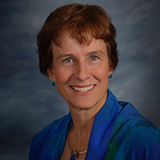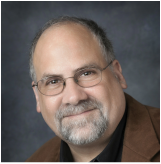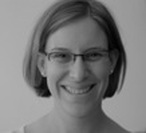Pre-Conference Activities
The conference offers attendees the option to participate in one of three preconference activities: (1) a spiritual care workshop, (2) a series of workshops on Judaism and Medicine, and (3) a tour of the Christian Science Mother Church. Within the second option, attendees may participate in one or both of the workshops. All preconference activities will take place on Friday, March 6, 2015, at 9am-12pm. Attendees will have the option to sign up during their conference registration.
Spiritual Care Workshop: An Interprofessional Model of Spiritual Assessment and Treatment [Revere BC]

Led by Dr. Christina Puchalski
George Washington University School of Medicine
This workshop will review the basic principles of communicating with patients about their spiritual issues. Spiritual screening, assessment and history will be presented. Participants will have an opportunity to briefly practice a history tool.
Attendees will be able to:
Cost: Student- $25.00 Other- $50.00
Christina Puchalski, MD, MS, is a professor of Medicine and Health Sciences at The George Washington University School of Medicine. She is an active board-certified clinician in Internal Medicine and Palliative Care. Dr. Christina Puchalski is a pioneer and international leader in the movement to integrate spirituality into healthcare in both the clinical setting and in medical education. As founder and director of the George Washington Institute for Spirituality and Health (GWish) at The George Washington University in Washington, DC, she continues to break new ground in the understanding and integration of spiritual care in a broad spectrum of healthcare environments. The spiritual assessment tool called FICA, which she developed, is used widely in clinical settings around the world.
George Washington University School of Medicine
This workshop will review the basic principles of communicating with patients about their spiritual issues. Spiritual screening, assessment and history will be presented. Participants will have an opportunity to briefly practice a history tool.
Attendees will be able to:
- Discuss an interprofessional model of spiritual care
- Differentiate spiritual screening, history and assessment
- Be able to take a spiritual history
- Describe aspects of a whole person assessment and treatment plan
Cost: Student- $25.00 Other- $50.00
Christina Puchalski, MD, MS, is a professor of Medicine and Health Sciences at The George Washington University School of Medicine. She is an active board-certified clinician in Internal Medicine and Palliative Care. Dr. Christina Puchalski is a pioneer and international leader in the movement to integrate spirituality into healthcare in both the clinical setting and in medical education. As founder and director of the George Washington Institute for Spirituality and Health (GWish) at The George Washington University in Washington, DC, she continues to break new ground in the understanding and integration of spiritual care in a broad spectrum of healthcare environments. The spiritual assessment tool called FICA, which she developed, is used widely in clinical settings around the world.
Workshops in Judaism and Medicine

Relational and Existential Elements of Illness and Healing: Practical Ways Sacred Wisdom Can Help Us in Our Healing Work
Led by Rabbi E. Noach Shapiro
9:00am-10:20am
Using several rich Talmudic texts about healing and suffering as a starting point, this workshop will explore the multi-dimensional, complex relationships between sufferers and their suffering (hint: it’s not so simple), healers and sufferers and how we can be most spiritually present in our encounters with those who come to us for healing, whether in the context of long term exchanges or the briefest of encounters. Although this will be a workshop rich in ideas and conversation, participants will walk away with practical ideas about how to deepen and enrich their encounters with those
who seek healing.
E. Noach Shapiro, LCSW, is an ordained rabbi and licensed clinical social worker. He is currently a therapist working with adult psychiatric and substance abuse clients at Newark Beth Israel Medical Center in Newark, NJ. He has over a decade of experience as a spiritual leader of two congregations as well as more than twenty years experience thinking, writing, speaking, and teaching about the profound nexus of medical and religious/ spiritual models of healing work. Rabbi Shapiro also has a general private practice in Montclair, NJ. To learn more about Rabbi Shapiro, please visit: www.enoachshapiro.com.
Led by Rabbi E. Noach Shapiro
9:00am-10:20am
Using several rich Talmudic texts about healing and suffering as a starting point, this workshop will explore the multi-dimensional, complex relationships between sufferers and their suffering (hint: it’s not so simple), healers and sufferers and how we can be most spiritually present in our encounters with those who come to us for healing, whether in the context of long term exchanges or the briefest of encounters. Although this will be a workshop rich in ideas and conversation, participants will walk away with practical ideas about how to deepen and enrich their encounters with those
who seek healing.
E. Noach Shapiro, LCSW, is an ordained rabbi and licensed clinical social worker. He is currently a therapist working with adult psychiatric and substance abuse clients at Newark Beth Israel Medical Center in Newark, NJ. He has over a decade of experience as a spiritual leader of two congregations as well as more than twenty years experience thinking, writing, speaking, and teaching about the profound nexus of medical and religious/ spiritual models of healing work. Rabbi Shapiro also has a general private practice in Montclair, NJ. To learn more about Rabbi Shapiro, please visit: www.enoachshapiro.com.

"The Best of Doctors Go to Hell": Rabbinic Perspectives on Healing and Humility
Led by Dr. Andrea Schwartz, Harvard Medical School
10:40am-12:00pm
An ancient Talmudic text warns, “The best of doctors go to Hell”— a troubling statement that at first glance appears to be a rarity among a generally positive attitude toward physicians and medicine in rabbinic texts. This provocative phrase has been the subject of generations of interpretation, ranging from the complementary (that the best physicians empathize with their patients and accompany them through the “hell” of illness and suffering) to the accusatory (that the 'best' physicians are arrogant and callous, deserving of punishment). This interactive workshop will explore interpretations of this provocative phrase along with several other Biblical and Rabbinic texts on the role of doctors and the divine as an example of how an ancient text can be used in a medical humanities context to spark discussion about society's ideals for and expectations of physicians.
Andrea Schwartz, MD, MPH, MA, is a physician completing a fellowship in Geriatric Medicine at Harvard Medical School. Dr. Schwartz completed an MA at the Jewish Theological Seminary, an MPH at the Hebrew University of Jerusalem, and Internal Medicine/Primary Care residency at the Brigham and Women’s Hospital. She graduated from Mount Sinai School of Medicine's Humanities in Medicine program, and currently serves on the Committee for the Arts and Humanities at Harvard Medical School.
Led by Dr. Andrea Schwartz, Harvard Medical School
10:40am-12:00pm
An ancient Talmudic text warns, “The best of doctors go to Hell”— a troubling statement that at first glance appears to be a rarity among a generally positive attitude toward physicians and medicine in rabbinic texts. This provocative phrase has been the subject of generations of interpretation, ranging from the complementary (that the best physicians empathize with their patients and accompany them through the “hell” of illness and suffering) to the accusatory (that the 'best' physicians are arrogant and callous, deserving of punishment). This interactive workshop will explore interpretations of this provocative phrase along with several other Biblical and Rabbinic texts on the role of doctors and the divine as an example of how an ancient text can be used in a medical humanities context to spark discussion about society's ideals for and expectations of physicians.
Andrea Schwartz, MD, MPH, MA, is a physician completing a fellowship in Geriatric Medicine at Harvard Medical School. Dr. Schwartz completed an MA at the Jewish Theological Seminary, an MPH at the Hebrew University of Jerusalem, and Internal Medicine/Primary Care residency at the Brigham and Women’s Hospital. She graduated from Mount Sinai School of Medicine's Humanities in Medicine program, and currently serves on the Committee for the Arts and Humanities at Harvard Medical School.
Local Tour of the Christian Science Mother Church
|
Conference attendees will go on a guided tour of the original Church of Christ, Scientist mother church, founded by Mary Baker Eddy in 1894 in Boston. The tour, led by local experts, will include information about the history of Christian Science, key beliefs about healing, and its historical and contemporary relationship with modern medicine. Lunch included and transportation provided from hotel. Cost: $15 For more information on the Church click here. |

